Syria’s top diplomat on Thursday attended an international conference in Paris, where regional and Western powers discussed shielding the war-torn country during its transition, with France saying the European Union is working toward swiftly easing sanctions.
Foreign Minister Asaad Hassan al-Shaibani was leading a delegation for a first trip to the EU since the December overthrow of longtime dictator Bashar Assad. Al-Shaibani attended the World Economic Forum in Davos last month.
The conference came a few days after President Emmanuel Macron invited Syria’s interim President Ahmed al-Sharaa to France.
“We want Syria to stop being used to destabilize the region. On the contrary, we want the Syrians to be able to focus today on the success of the transition and the recovery of their country,” French Foreign Minister Jean-Noel Barrot said at the start of the meeting.
“We must preserve the still fragile hope that was born in Damascus on Dec. 8 (when Assad was toppled by anti-regime forces) by allowing them to work in a serene manner.”
Regional ministers, including from Saudi Arabia, Türkiye and Lebanon, were joined by Western partners at the gathering, though the U.S. had only a low-level diplomatic presence.
The meeting aimed to coordinate efforts to ensure Syria’s sovereignty and security through its transition and mobilize its main neighbors and partners to coordinate aid and economic support, the French foreign ministry said.
The participants also planned to discuss transitional justice and the fight against impunity for those accused of abuses during Syria’s 13-year-long civil war.
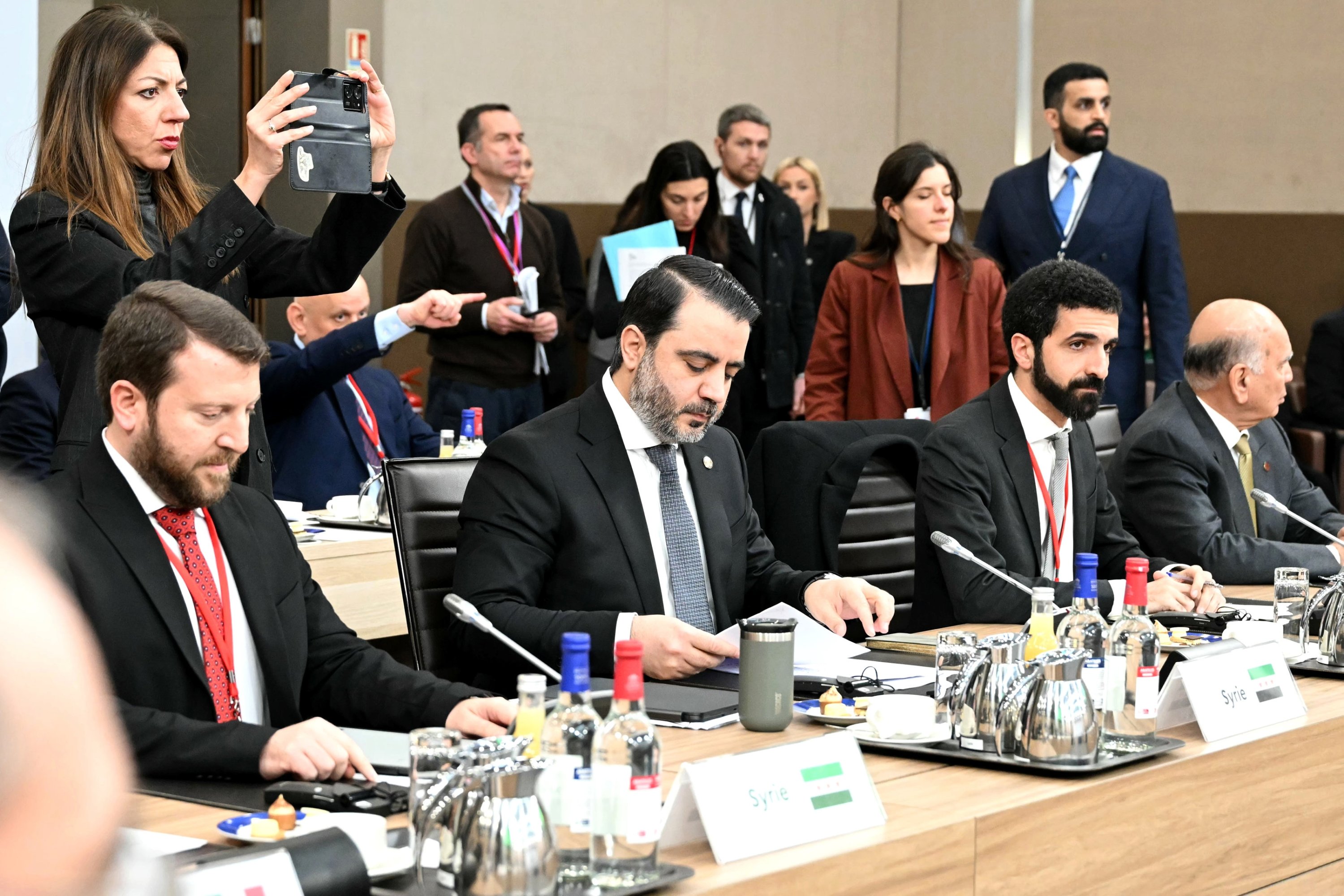
Al-Shaibani on Wednesday said a new government would take over next month from the interim cabinet, vowing that it would represent all Syrians in their diversity.
Several diplomatic sources had said the conference also aimed to focus on protecting Syria from destabilizing foreign interference and coordinating aid efforts.
Addressing the meeting, President Emmanuel Macron said France is ready to do more to fight terrorist groups in Syria and that the country should not see the return of Iran militias.
The meeting in Paris did not aim to raise funds, which will be left to an annual pledging conference in Brussels on March 17, but issues such as the lifting of sanctions imposed on Syria during Assad’s iron-fisted rule were to be discussed.
Syria’s new administration has been lobbying the West to ease sanctions to allow the country to rebuild its economy.
The EU agreed in principle last month to lift sanctions, starting with key sectors such as energy.
“We are working with my European counterparts towards a rapid lifting of sectorial economic sanctions,” Barrot said on Thursday.
So far, there has been no follow-through due to Greece and the Greek Cypriot administration’s objections to maritime boundary talks between Syria and Türkiye.
Greece and Greek Cyprus also want assurances that sanctions could be restored quickly, two diplomats said.
They said they were hopeful a compromise could be reached this month.
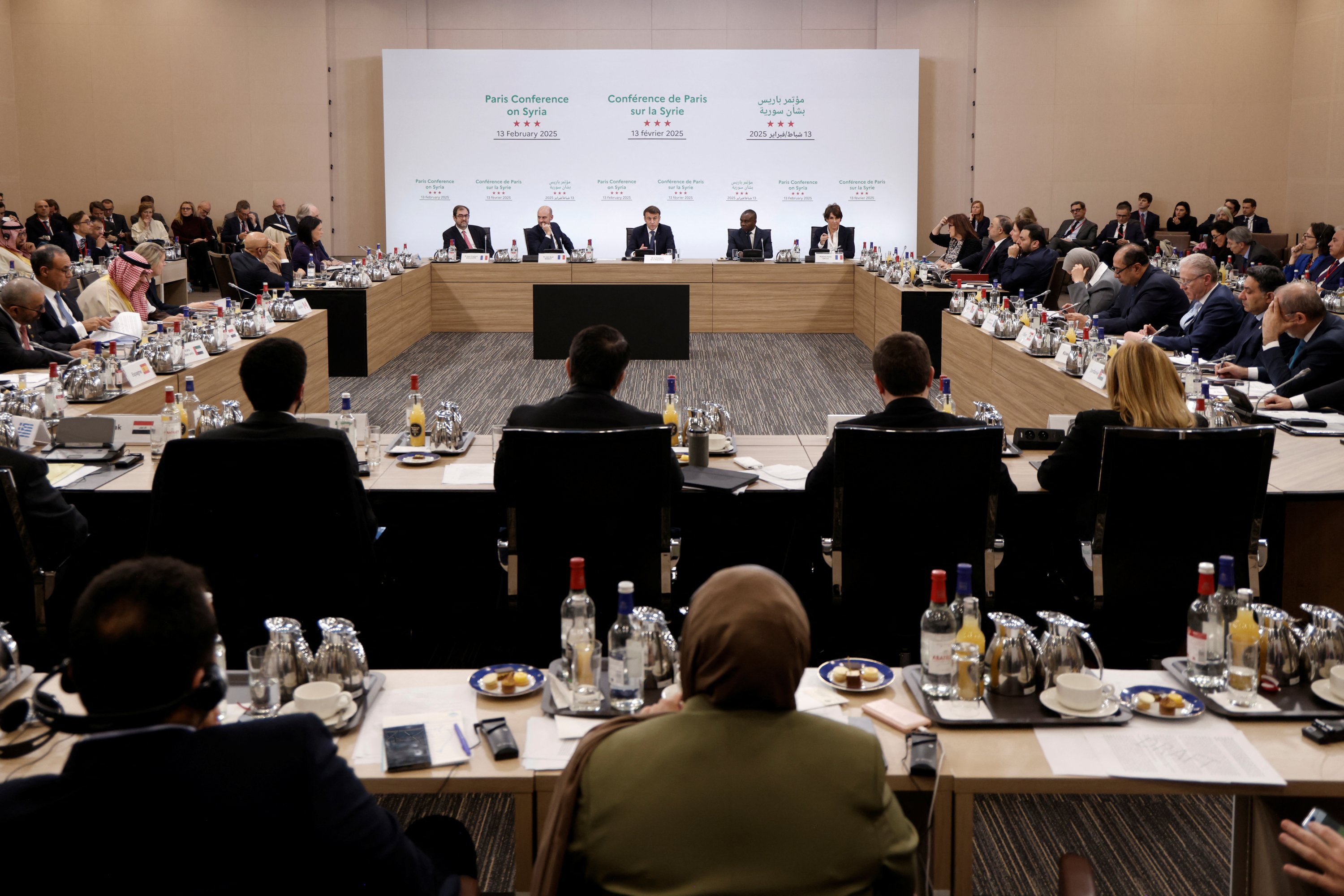
Barrot, whose country was expected to announce the reopening of the French embassy in Damascus on Thursday, said sanctions-lifting was a work in progress and German counterpart Annalena Baerbock said it would be done “step by step.”
Britain also plans to ease sanctions on Syria under a new plan announced by the government on Thursday.
Foreign Office Minister Stephen Doughty said they would “include the relaxation of restrictions that apply to the energy, transport, and finance sectors,” but members of parliament still need to debate the proposals.
The United States has started easing its own sanctions, allowing fuel and electricity donations to Syria for six months.

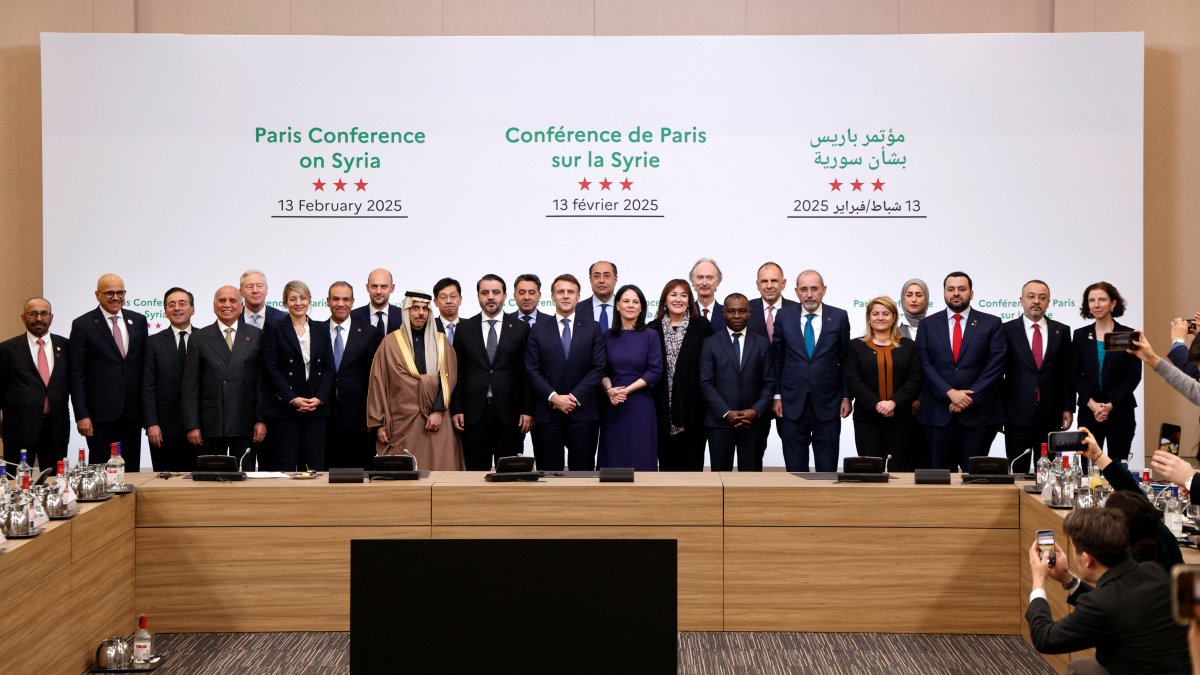

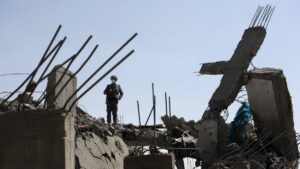

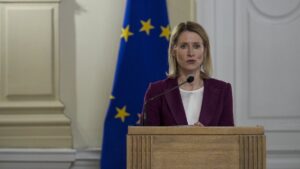
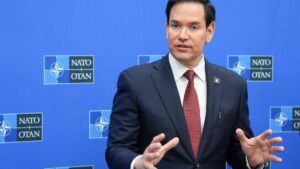
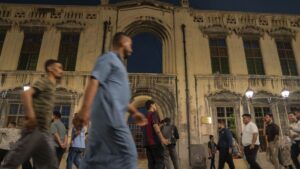
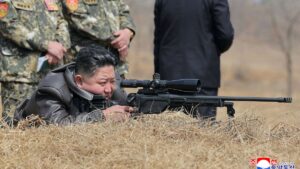
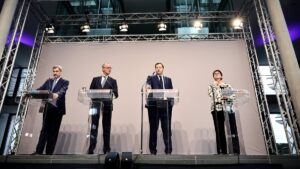

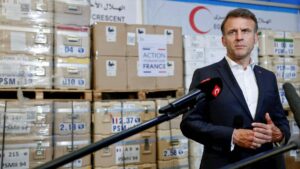








































Be First to Comment